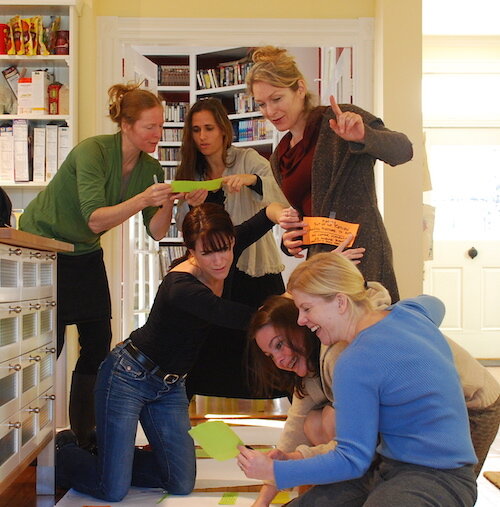
banter
Welcome to my archived blog, Banter.
I’ll start, you chime in—I really want to hear from you!
Contempt: from eye-rolling to sarcasm
According to John Gottman:
“Contempt is the single greatest predictor of divorce. It must be eliminated.”
In Gottman’s Four Horsemen of the Apocalypse, contempt is by far the most toxic to relationships. Contempt is characterized by being brutally mean in a way intended to make the other person feel “despised and worthless.” Behaviors such as mocking, ridiculing, name calling, mimicking, eye-rolling, sneering, scoffing, all code as contempt. Notice the facial expression in the accompanying photo of Dr. Jim Coan modeling contempt: one side of the mouth is raised in a sneer. There is a sense of superiority and distaste, almost disgust.
Gottman and Coan looked at couples. But we all know that contempt sneaks into the work place, certainly into politics, and more and more into what used to be simple disagreements. If contempt is the most toxic behavior in intimate relationships, it is certainly toxic elsewhere.
What does Gottman prescribe as the antidote? Read on…
Defensiveness
In exploring John Gottman’s Four Horsemen of the Apocalypse, I begin with Defensiveness mostly because it is the one I find most common in my own relationships and interactions. Yes, indeed. Why? Because I want everyone to love me and I’m always right. A perfect recipe for defensiveness.
Gottman notes that defensiveness is usually a response to criticism (we’ll get to that!).
Importantly, Gottman reminds us that “being defensive never helps to solve the problem at hand.” Defensiveness does not work! It does not solve the problem! It only serves to dig deeper into the conflict.
What does Gottman advise as an antidote to defensiveness? “The antidote is to …read on.
Taming the Horse: Gottman’s Four Horsemen of the Apocalypse
Though John Gottman’s research focuses on romantic partnerships, I find his work very useful when thinking about all sorts of interactive communications: tense conversations, co-parenting, parenting, facilitation, interviews, community meetings. Gottman’s Four Horses of the Apocalypse are particularly useful; these are the behaviors Gottman has found to most negatively impact relationships. Of course, we all fall into these behaviors sometimes! They key is to notice when they dominate interactions and practice their antidotes when possible. In heightened, high-stakes interactions where we need to influence others, gain momentum, create coalitions, change systems, ignite ideas, or overcome obstacles, avoiding these behaviors is an essential skill.
Gottman’s Four Horsemen of the Apocalypse are: defensiveness, criticism, stonewalling, and read on…
Communication Catastrophes: complaint, criticism, and cutting off
This week we play with consciously avoiding Complaint, Criticism, and Cutting-off—in all interactions from team meetings to dinner conversations.
If the goal is to converse, communicate, and connect, these three Communication Catastrophes serve only to negate others, create anger and resentment, and to splinter groups.
The first thing is to become aware of our own patterns. With awareness comes change. Notice when we complain, criticize, or cut-in when someone else is speaking. Even those of us with eye-rolling teenagers can give this a go!
This week: consciously avoid complaining, criticizing, and cutting others off when they are speaking. Then, notice how our relationships shift.
Next week: we go further and substitute Communication Catastrophes with Communication Charmers!
Let’s begin.
Sign-up for Weekly Presence Prompts
Weekly prompts for public speaking, virtual communication, personal presence, and skillful conversations.



